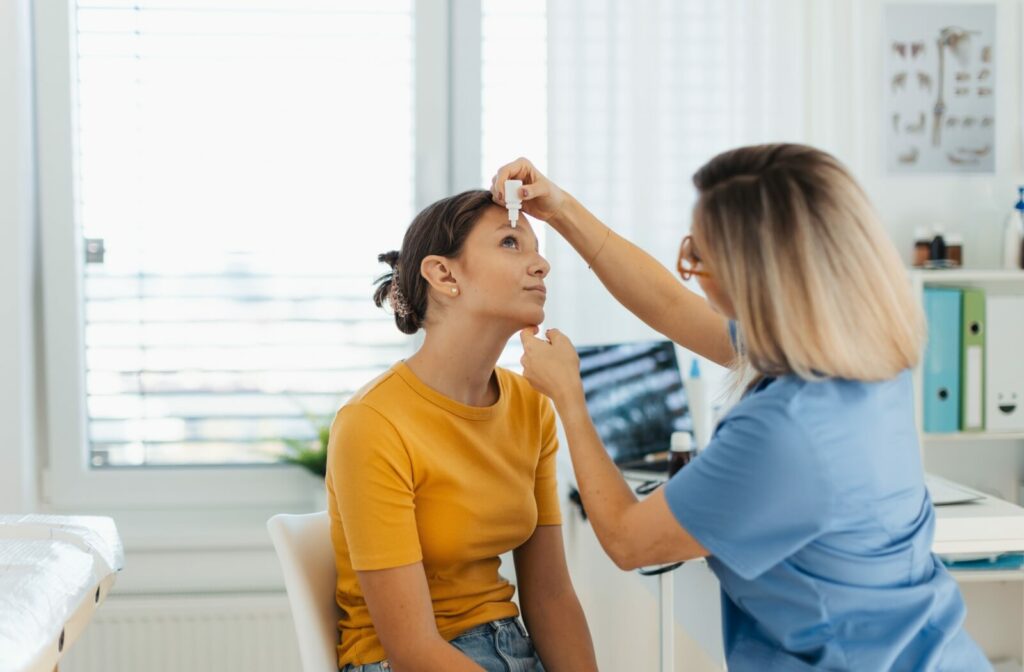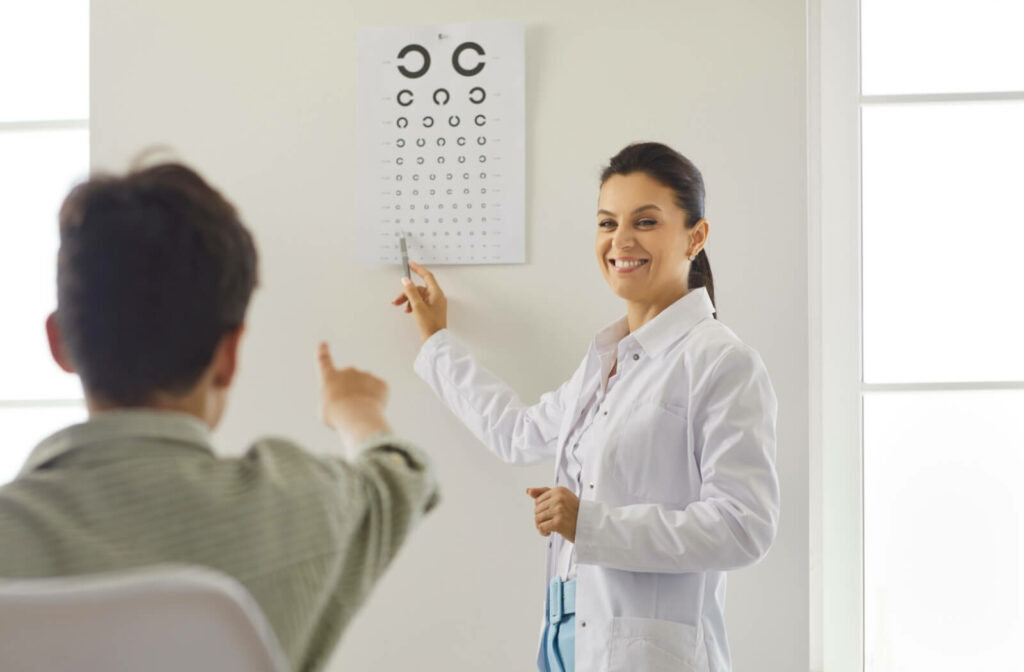Myopia, commonly known as nearsightedness, cannot be reversed once structural changes in the eye have occurred. However, there are some potential solutions. While myopia correction typically involves glasses, contact lenses, or surgery, advancements in eye care have produced other effective options for managing and slowing the progression of myopia in children..
Whether you’re looking for ways to support your child’s vision or considering options for yourself, understanding the possibilities can help you make informed decisions about eye health.
Understanding Myopia
Myopia occurs when the eyeball grows too long or the cornea curves too much, causing light to focus in front of the retina instead of directly on it. This often results in blurry vision when looking at distant objects.
In recent years, myopia has become increasingly common, particularly among children and teenagers. Lifestyle changes, such as increased screen time and reduced outdoor time, potentially contribute to this rising trend.
As more people engage in near-work activities like reading, studying, or using digital devices for extended periods, the resulting strain on the eyes can accelerate myopia progression. Recognizing these risk factors early and adopting preventive measures can be beneficial in maintaining long-term eye health.
Myopia frequently begins in childhood and progresses through the teen years. While genetics play a significant role, lifestyle factors such as excessive screen time, lack of outdoor activity, and prolonged near work also contribute to its development.
Is Myopia Reversible?
While we can’t reverse myopia, the good news is that there are effective ways to manage and slow it down in children. These methods can help to reduce reliance on corrective lenses and can minimize long-term risks associated with high myopia, such as retinal detachment and glaucoma.
Our team at EyeQ Optical offers myopia control treatments tailored to our patient’s needs, helping reach positive outcomes for their vision.
Effective Myopia Management Options
At EyeQ Optical, we offer several solutions for managing myopia. Here are some treatments to consider:
Orthokeratology (Ortho-K)
Ortho-K involves wearing specially designed rigid gas-permeable contact lenses overnight to gently reshape the cornea. This non-invasive treatment can help lead to clear vision during the day without needing glasses or contact lenses.
Ortho-K is known to be especially effective for children and teenagers, helping to control the progression of myopia as they grow.
Atropine Eye Drops
Low-dose atropine eye drops are a proven method to slow myopia progression in children. These drops relax the eye’s focusing mechanism, which helps reduce the rate of myopia progression when used consistently.

Multifocal Contact Lenses
Originally designed for presbyopia, multifocal lenses have also shown effectiveness in controlling myopia progression in children. They work by focusing light differently across the retina, reducing strain and preventing further elongation of the eyeball.
Myopia Management for Adults
For adults, myopia management options may include prescription glasses and contacts, or laser eye surgery.
Glasses & Contact Lenses
The most common form of myopia management is through prescription contacts and lenses. These help to refocus light onto the retina, allowing for clearer distance vision and reducing eye strain. Contact lenses offer a more natural field of view, while glasses provide a convenient, non-invasive solution for vision correction.
Laser Eye Surgery
For adults with stable myopia, laser eye surgery options like LASIK can reshape the cornea to improve vision. While this doesn’t reverse myopia, it can eliminate the need for glasses or contact lenses and enhance overall visual clarity. Be sure to consult with our EyeQ Optical team to see if you’re a candidate for this procedure.
Lifestyle Changes to Manage Myopia
Clinical treatments often work best when combined with simple lifestyle adjustments. Consider incorporating the following habits into your or your child’s daily routine to maintain better eye health:
Spend More Time Outdoors
Sunlight exposure plays an important role in eye health by helping regulate dopamine levels in the retina, which can slow down abnormal eye growth in children. In particular, children who spend more time outdoors have a lower risk of developing myopia compared to those who primarily engage in indoor activities. Encouraging outdoor play, sports, and nature walks can be a simple yet effective way to support healthy vision development.
Use 20-20-20 Rule
Too much screen time can potentially worsen myopia and lead to eye strain. Follow the 20-20-20 Rule to give your eyes a break and help to control myopia. Every 20 minutes, look at something 20 feet away for at least 20 seconds.
Limited Screen Time for Kids
Encourage more outdoor activities and creative play rather than long hours of screen use. Balance screen time with breaks to help prevent digital eye strain. Set screen time limits, encourage frequent breaks, and promote hands-on activities like puzzles, drawing, or sports to support healthy eye development.
Improve Your Eye Health with EyeQ Optical
While myopia can’t be reversed, it can be effectively managed to protect long-term eye health. At EyeQ Optical, we provide comprehensive myopia management tailored to your needs, including atropine drops and lifestyle recommendations to help slow progression and maintain clear vision.
Schedule a consultation with our expert team to explore the best options for you or your family.




